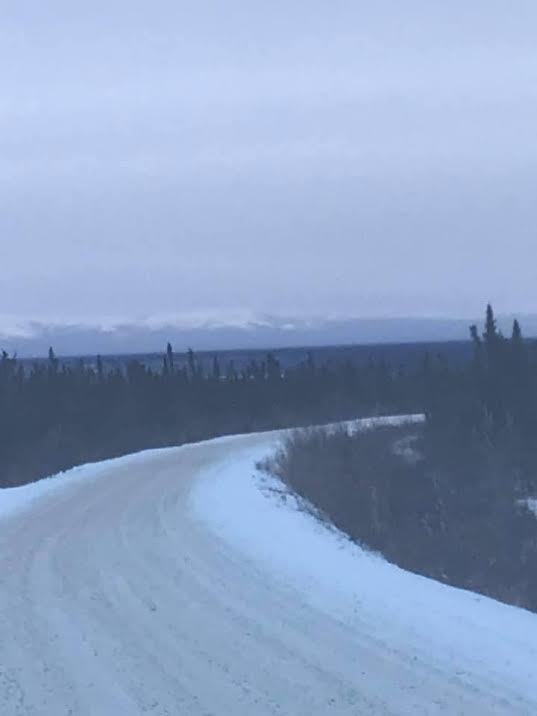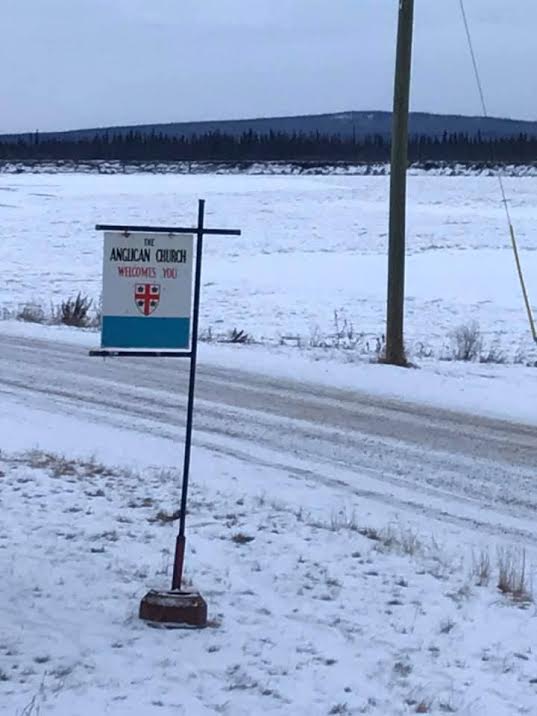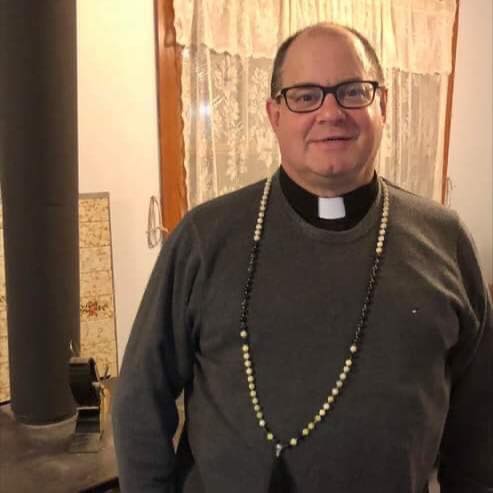- Michael Harrington
- Lomez
- Tony Martins
- Roobz
- Kayla Alle and Mike Knippel
- Samoa Wilson
- Shelagh Corbett
- Alf Bogusky
- Mr. Abbott
- Rachel Eagen
- Martha Herndon
- Charlie Dalton
- Kathryn McLeod
- Bob Bickford
- Michael Murray
- The Galaxy Brains
- Gerard Tevlin
- Leah Modigliani
- Jeffrey Mackie
- Zachary Rombakis
- Jones Murray
- Gun Roze
- Joe Macdonald
- Rob Hyndman
‘DARE’ in the Arctic Circle
In October of 2020 I was in Old Crow, a fly-in community in Northern Yukon situated within the Arctic Circle. It is the home of the Vuntut Gwichin First Nation.

I had recently been ordained as a Deacon in the Anglican Diocese of Yukon, and was there to assist the Bishop with baptisms. Flying into Old Crow I had been awed by how different the landscape was below us, a landscape I had only seen before in photographs. It was very different from the one that I had grown up in, which was the suburbs of Ottawa. I was now in my early fifties and experiencing a reality very much outside that which I had known. I had cause and time to reflect on my passage as we flew over, and finally into, Old Crow.
My journey to ordination had begun when I was sixteen and an ardent member of my church. I was a regular server, and a participant in church activities. I felt drawn to the idea of priesthood, and ultimately told my parish priest of this sense of calling. At such a young age, though, there would be years of study and life experience needed before becoming ordained, or even considered for ordination.
In late high school and university, I got involved in the mod scene and was much influenced by Paul Weller, the lead singer of The Jam. I note this because when I reflected in seminary on my influences, I mentioned him. As an adolescent, he was a role model of mine, representing a person who followed his own path. Being into The Jam and other British music and looking at joining the ministry were outside of the norm for many of my peers, so Weller’s individuality and self-assurance struck a chord with me.
Man In the Corner Shop, by The Jam
At any rate, when I went to Old Crow I had only been ordained for two months. Everything was new, and listening to the music from my youth there, I was struck by how far I was from the place where I had first heard it. There was a line in The Human League song from the album ‘DARE’ that resonated with me– “See things you thought you’d never see.” Now, I’m not saying that I am under my own direction, but I am following what I believe is my call, and doing that opened a new world, one I thought I’d never see.
Three years previous to this flight into Old Crow, I was back in seminary at 51, studying theology and wondering where it was taking me. At that juncture I was happy just to be able to complete my courses with good grades. It was empowering and unnerving at the same time, to change the direction of my life at that time. I had been in a holding pattern for a long period, doing writing and literary events, but in retrospect I think I was coasting and not really growing. As I followed this new path, wrestling with doubts and fears and trying to see where God was leading me, I also took inspiration from musicians and writers I knew who also followed new paths, because they believed that was how they could be true to their vision.
On this road I’d would say you don’t see the signposts until after you’ve passed them. These signposts could be the person who encouraged you, a placement opportunity, or a challenge. Quite often I only saw the importance of the challenges in retrospect, because when I was in the middle of them I would feel the temptation to quit, to turn away from where I believed I was going. I was changing, not into a different person but into a deeper realization of myself and what I could do on this earth. Though I could see something new and positive before me, there still existed a resistance to change within me.
But I had to be refashioned.
The person I was three years before would not have been ready or able to go to Old Crow. I also do not think that this opportunity would have presented itself before then. New ideas and chances for growth came as I developed. I became a person who might say yes to ministry in Yukon. This does not imply that I was the bravest or the best; I didn’t know everything, but at the same time I was prepared.
I was also surprised when the chance to do ministry in Yukon first appeared; it was definitely not a place I had contemplated for this work. I was not particularly outdoorsy, nor had I been a fan of Jack London stories, nor did I have any experience in Indigenous church, or amongst First Nation Anglicans. ( I should mention that I did originally work a summer in Mayo, Yukon prior to coming back and beginning ordained ministry.) Even if I thought I was unprepared, the reality is that I was, I was ready.
I have learned that ministry, ordained or lay, is a continual process of learning and growing. It is also a process of trying to ascertain where God wants you to go, what God wants for our lives, a process often called discernment. Ministry comes in many vocations, and ways of serving God and our communities. I mention community because it is essential for support, but it is also essential to have mentors and guides alongside us as we try to determine our path. Ministry, like Christianity itself, is always alive and moving. It is, in my view, wrong to see it as an historical artifact; I know that Jesus continues to change lives, to move and create in ways we can’t imagine. Christianity should be seen as being more avant-garde, more adventurous than it’s typically given credit for.
Alternative music has been a huge part of my life and my upbringing. When I was young it showed me a world beyond the one that I lived in, and through it, I saw different ideas and places. It led me to read books and to write poetry, a creative outlet that fuelled my spirituality and self expression. Music continues to inspire me and lead me in new directions. In my mid-teens I heard The Human League, I heard The Jam, and it was all so new, so full of possibilities. It was an amplification of what I knew, analogous to who I was and who I was being called to become.
I hold resolutely to the idea that music is essential and can lead the listener to discovery. I am not saying it is a substitute for other avenues of faith, but like all art it can be a catalyst into the journey. You can find surprising questions of faith and doubt in popular music; they are often expressed with more honesty than elsewhere, because they don’t pay heed to a specific doctrine or theology. Musicians who, like their audiences, are asking questions of faith and wondering where God is calling them… or even where God is in this world and their lives. It may lead them to ‘Dare’ to go beyond what they know and grow in faith they never imagined possible.


Jeffrey Mackie
